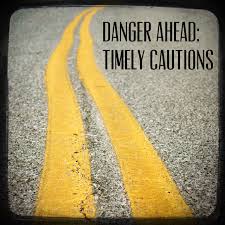 Yes. I said heading to college may be deadly. At the risk of being a naysayer and offering a negative image, recent news confirms my concern. At least eight freshmen at U.S. colleges have died in the first few weeks of this school year. That’s by no means an epidemic, but it is something parents should address with their future college students.
Yes. I said heading to college may be deadly. At the risk of being a naysayer and offering a negative image, recent news confirms my concern. At least eight freshmen at U.S. colleges have died in the first few weeks of this school year. That’s by no means an epidemic, but it is something parents should address with their future college students.
In an article by Inside Higher Ed, “Lives Cut Short”, the stories of these tragedies is discussed:
At least eight freshmen at U.S. colleges have died in the first few weeks of this school year. The deaths have cast a shadow over the campuses on which the students spent too little time, but they’re also a cross-section of the kinds of issues and decisions facing freshmen as they begin their college careers — and of the choices some young students may not be prepared to make. Even colleges with the best approaches to educating students about mental health issues may have very little time to reach those who may be vulnerable.
Why is this happening?
You’ve lectured them. You’ve warned them. You’ve taught them right from wrong. But have you prepared them to face what waits for them at college: stress, extreme peer pressure, and abundant alcohol?
During senior year you are so focused on getting in to college, that often the most important discussions get shoved to the back burner. We cram those discussions in on the trip to move in and neglect to offer our kids advice on how to deal with the difficult decisions involved during those first few weeks of college.
“It’s a huge transition and all the support systems are different,” said Pete Goldsmith, dean of students at Indiana University at Bloomington. “For students who have lived in very structured situations and environments, going to a college campus when very suddenly they have this new kind of freedom and new choices to make, it can be pretty overwhelming.”
What tools should you give your student before he leaves for college?
Discussions about the dangers he will face in college are great—start there. But discuss the “what-ifs”:
- What if everyone around you is binge drinking and wants you to join in? How will you respond?
- What if you see someone who is obviously overindulging? What should you do and who should you tell?
- What if a student tells you he’s suicidal? Where can you go for help?
- What if you witness dangerous behavior? What should you do?
- How do you recognize alcohol poisoning—how much is too much?
Don’t delude yourself into thinking that it’s not going to happen to your kid. Every school is a party school. Alcohol is readily available, especially to freshmen who consider it an “initiation” into adulthood to get when their parents aren’t a factor and they are free to abuse without repercussions. Sticking your head in the sand won’t help you or your student. Discuss the “what ifs” before freshman year.

